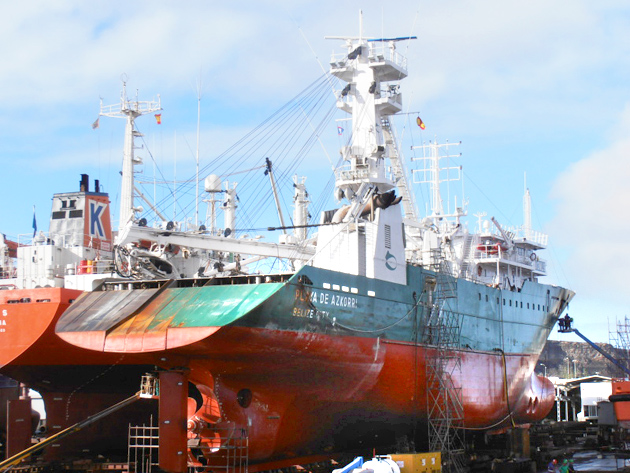The EU’s executive arm announced on Monday, March 24, 2014, a ban on fish imports from vessels flagged to Belize, Cambodia and Guinea (Conakry), in a move that could have repercussions for tuna companies such as MW Brands and Pervasa. The ban is part of the EU’s efforts against illegal, unreported and unregulated (IUU) fishing.
The council’s decision is based on the view that Belize, Cambodia and Guinea are acting insufficiently against illegal fishing. The sanctions mean imports into the EU of any fisheries products caught by vessels from these countries will be banned, while EU vessels will not be allowed to fish in these countries’ waters. It is the first time that measures of this type are adopted at EU level.
Other forms of cooperation, such as joint fishing operations or fisheries agreements with these countries will no longer be possible. The sanctions could have repercussions for Europe’s largest tuna canner MW Brands and the Spanish tuna fishing group Pevasa, which both have vessels flagged to Belize, Undercurrent News reported last year.
Belize Responds To The Decision Of The European Union Council On High Seas Fishing
Belmopan, 25th March, 2014. The Government of Belize has noted with concern the decision of the Council of the European Union to list Belize, along with Cambodia and Guinea, as a ‘non-cooperating third country’ in the fight against illegal fishing. The Government believes that there was absolutely no justification for this action as Belize has taken all necessary steps required by the E.U’s Directorate General of Maritime Affairs and Fisheries (DG MARE) to eradicate illegal, unreported and unregulated (IUU) fishing.
The decision of the EU Council is based on outdated information and takes no account of the measures adopted by Belize within the last six (6) months to strengthen its high seas fishing regime. In October 2013, Belize enacted a new and robust High Seas Fishing Act which came into effect on November 8, 2013. This Act was supplemented by the Sanctions Regulations and the Licensing Regulations, both of which came into force on March 12, 2014. These regulations which prescribe stringent penalties for violations of this Act would make the High Seas Fishing Act fully operational – a key demand of the EU. In addition, Belize has signed a contract with a South African Company, Capricorn Fisheries Monitoring, to provide On Sea Observer services for Belize flagged vessels, at a cost of about US$200,000 for the first year. This program takes effect from April 1, 2014.
In addition to the above measures, Belize has also prepared monitoring and surveillance regulations, as well as a national plan of action, to eliminate IUU fishing. In January this year, a delegation from the EU’s DG MARE, along with the EU Commissioner for the Caribbean based in Jamaica, visited Belize to discuss the action taken by Belize to comply with the EU Regulations on IUU fishing. The delegation met with Prime Minister Hon. Dean Barrow and was assured of Belize’s total commitment to eliminate IUU fishing. Since then, we have had no indication that the EU was still contemplating listing Belize as a ‘non-cooperating third country’.
While the reasons given by the EU to list Belize are no longer valid, we will work closely with DG MARE to implement a few other measures relating to the size of our fleet and the adoption of monitoring, control and surveillance regulations. We are assured that DG MARE would then make a recommendation to the EU Council to remove Belize from the list of non-cooperating third countries, when the Council reconvenes in September this year.











